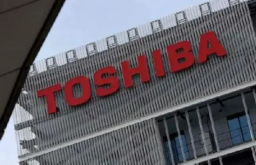On September 21, Toshiba announced that a US$15 billion tender offer led by the private equity fund "Japan Industrial Partners (JIP)" had been successful. More than half of the shareholders participated in the acquisition, reaching the threshold for privatizing the company. JIP currently holds 78.65% of the company's shares. After the transaction is completed, Toshiba will be delisted from the Tokyo Stock Exchange.
In April 2021, private equity firm CVC made a privatization offer for Toshiba. Toshiba rejected the proposal at the time but said it would consider credible offers.
In March this year, Toshiba accepted an acquisition proposal from Japan Industrial Partners (JIP), a capital alliance composed of domestic companies in Japan. The goal of the JIP proposal is to gradually increase Toshiba's corporate value in the future, delist Toshiba from the stock exchange after a public acquisition, and then relist Toshiba after the corporate value recovers. According to Japanese media reports, based on Toshiba’s market value, JIP’s public acquisition amount is approximately US$15.3 billion.
Toshiba is a Japanese electronics manufacturing giant with a long history, founded in 1875. From the earliest incandescent lamps to later home appliances, Toshiba's business has gradually expanded to lifestyle products, information communications, semiconductors, etc. The company was listed on the Tokyo Stock Exchange in 1949. At its peak, Toshiba's home appliance business accounted for one-third of Toshiba's total revenue, and together with Sharp and Panasonic, it became the "Big Three" of Japanese white goods.
In the past ten years, this haloed technology giant has gradually declined from glory to glory. In terms of semiconductors, U.S. sanctions and the development of other countries have caused it to lose its advantage; the rise of Chinese manufacturing has also impacted Toshiba's home appliance business. After the March 11 earthquake in Japan in 2011, the leakage of the Fukushima nuclear power plant caused Toshiba's nuclear power business to fall.
In 2015, a financial fraud case tarnished the reputation of this long-standing company, and its stock price plummeted. In 2015, Toshiba's scandal of falsely reporting profits was exposed. The three presidents involved in the incident included falsely reported profits of US$1.2 billion in five years. After the fraud was exposed, Toshiba's stock price plummeted and its market value shrank by 40%.
In order to solve these problems, Toshiba began to pursue privatization. In 2017, Toshiba announced that it would sell its chip business to raise funds to make up for losses. However, the deal was delayed multiple times and was eventually canceled in 2018. In the same year, Toshiba announced that it would sell its storage business to further raise funds. The deal was finally completed in 2018, with Toshiba selling its storage business to U.S. private equity firm Bain Capital.
After many failed attempts, Toshiba finally decided to pursue privatization. JIP is a private equity fund composed of many large Japanese companies, including Hitachi, NEC and Fujitsu. JIP said it will invest 100 billion yen (about 940 million U.S. dollars) to improve Toshiba's financial situation and strengthen its competitiveness in fields such as semiconductors and energy.
Over the past few decades, Japanese electronics manufacturing was once one of the world's leading industries, producing many classic electronic products. However, with the rise of countries such as China and South Korea, Japan's electronics manufacturing industry has gradually lost its competitiveness. Toshiba's delisting will bring an end to the decline of Japan's electronics manufacturing industry.


